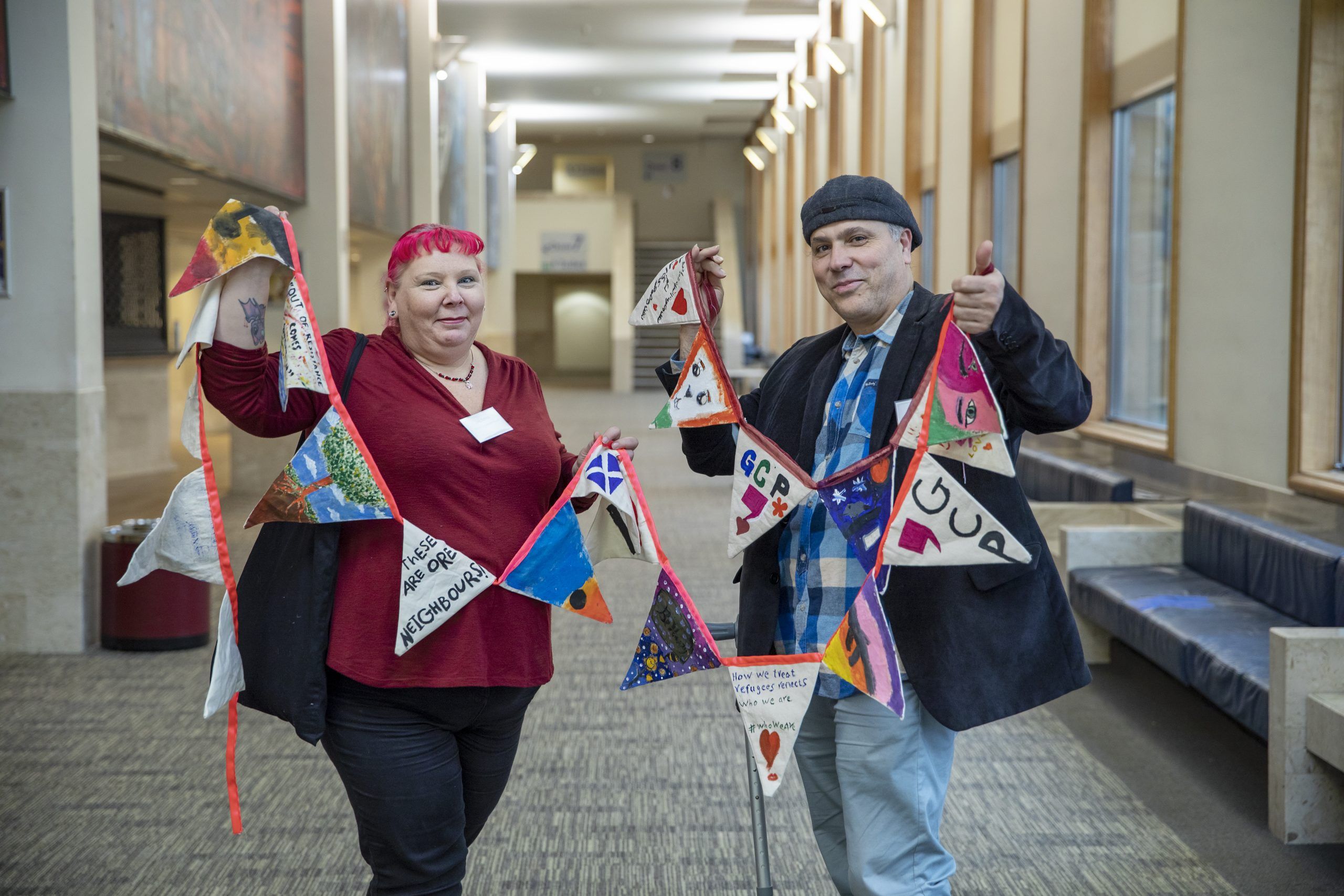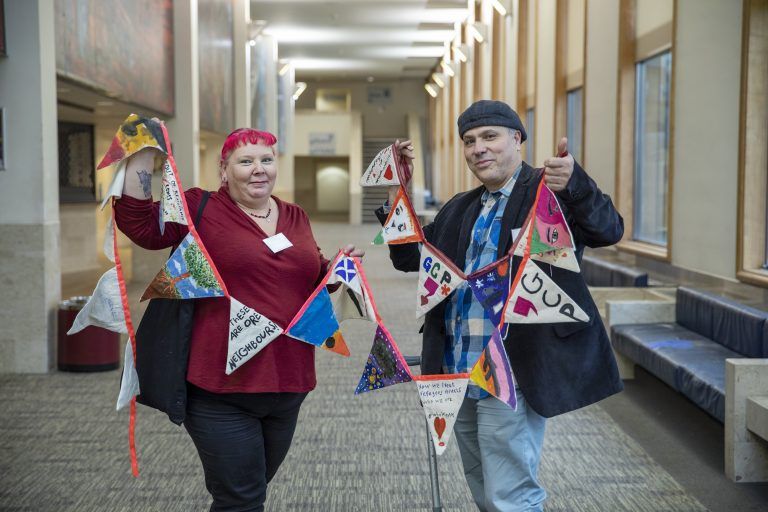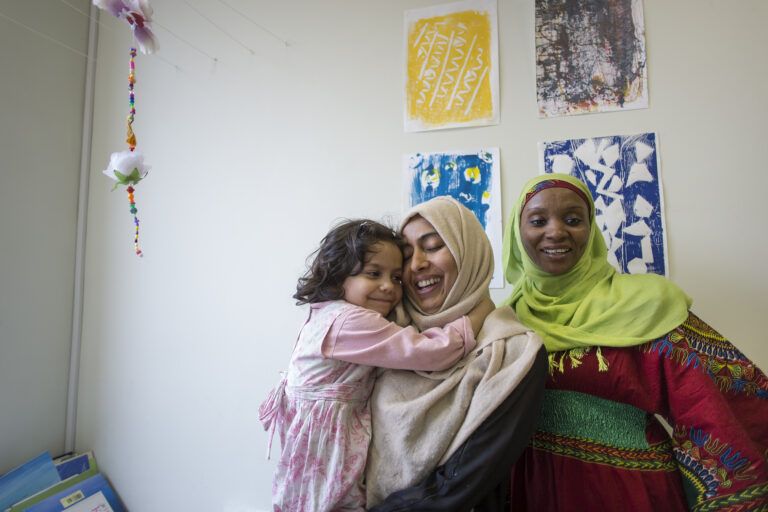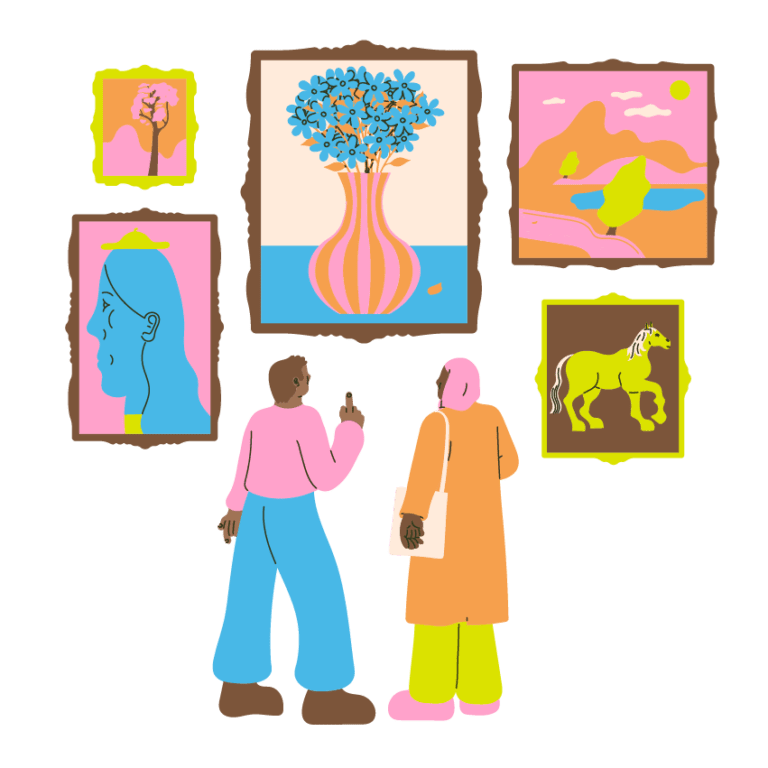Impact
We collected evidence and data throughout the project in a variety of ways.
We created an open culture that encouraged students to provide feedback and make suggestions, including the changes they would like to see.
We ensured that our evaluation methods were inclusive, offering people the opportunity to provide feedback in their native language as well as in English.
From a focus session, where 10 students who regularly attended our Govan classes and took part in a range of our socially integrated opportunities gave feedback, we captured the following data.
We asked participants (before and after the project began and ended) how much they agreed with the following statements (on a scale of 1–5):
- “I am good at speaking English”
- “I feel like I have a community”
- “I know museums and places to visit in Glasgow”
- “I feel confident with English grammar and vocabulary”
- “I know how to use a computer to help me learn English”
- “I know places in Govan where I can do activities”
Across the board, we observed increases in people agreeing with these statements.
For example, the average response in relation to confidence in speaking English rose from 2.8 to 4.6.
We saw a similar increase in relation to having friends, which rose from 2.6 at the beginning to 4.4.
The biggest change was in relation to grammar and vocabulary, where the average response across learners increased from 2 to 4.6.
In relation to knowing museums and places to visit, the change was significant, growing from 2.4 to 4.8 by the end of the project.
In terms of using a computer to learn, the average response rose from 1.2 to 3.4, and in relation to knowing places in Govan, the average increased from 1.8 to 4.4.
This data sample shows that the project had a range of benefits for participants. In addition to improving their English and confidence, people also gained a sense of community, made friends, and learned about new places in Glasgow. Beyond this, we have also received a lot of qualitative feedback.
Here are some examples of the direct feedback we have received:
“I wanted to tell you that after having been on the waiting list for quite some time, I have been accepted into the College, and they let me know in the last few days. I am starting classes this week, so I will not be able to continue with your lovely classes. I just want to thank you for the opportunity you gave me!”
“Thank you for the work you do with people like us, helping us to integrate and socialise, which is so important for life. Greetings, I hope to hear from you! Thanks a lot!” (translated)
“I thank you very much for being there to help me when I don’t understand. I’m glad you know Vietnamese to talk to me.”
“I am happiest when I am in English class.”
“I have compared our class with others and I am happy with this one – I really love our group.”





